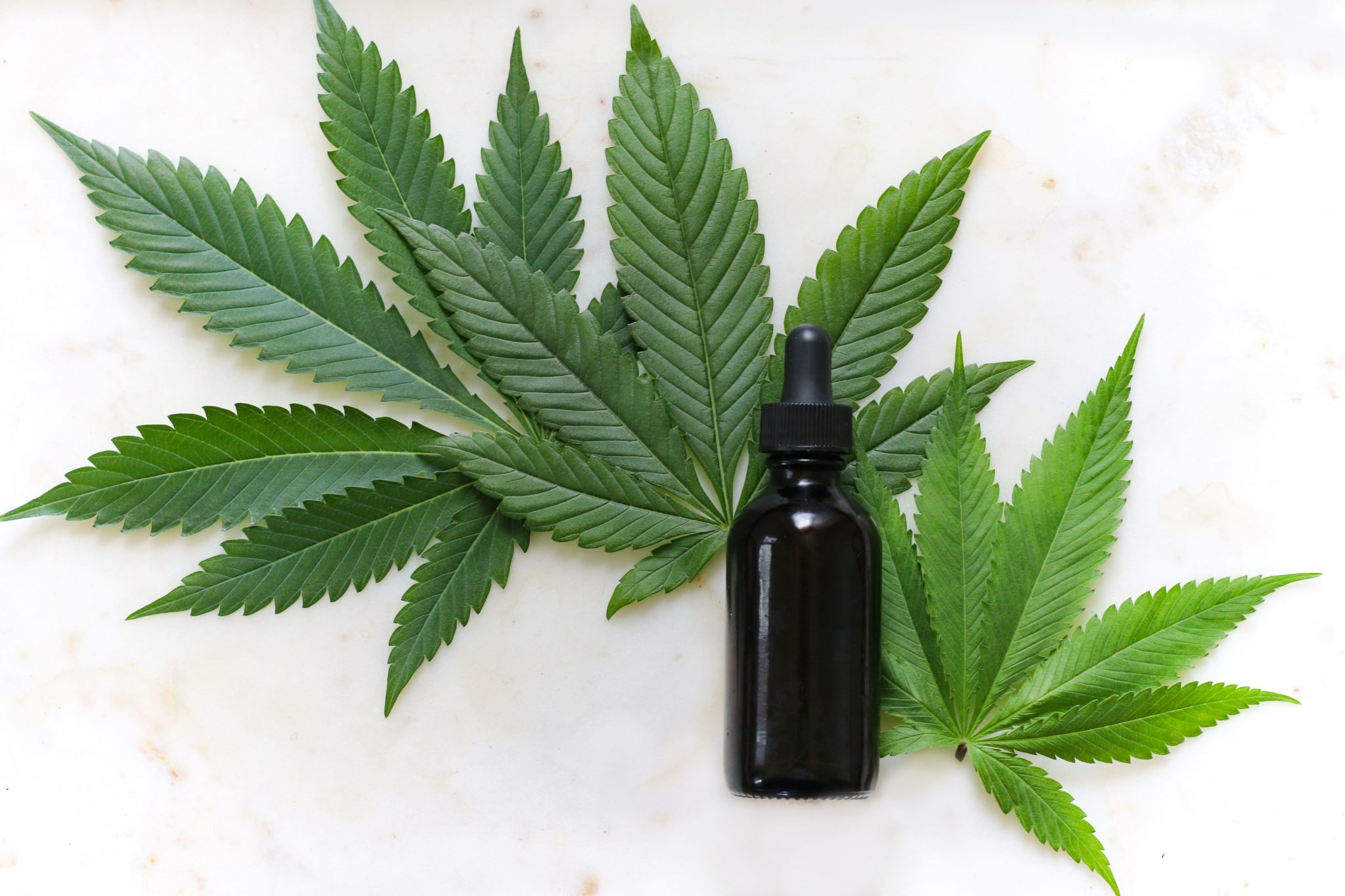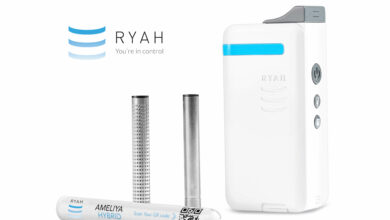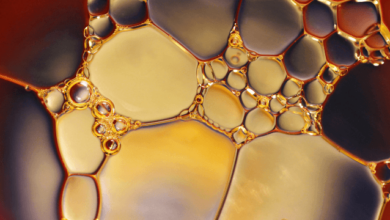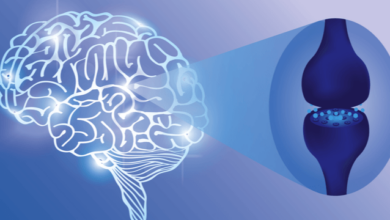
A comprehensive review of the differences between CBD and THC including medical benefits, side-effects and legality.
The two most well researched and abundant components found in the cannabis plant are cannabidiol (CBD) and tetrahydrocannabinol (THC). Both are in a class of compounds called cannabinoids yet they both cause different effects on the human body.
The question on most people’s minds when consuming cannabis-based products for the first time is generally, “What is the difference between CBD vs THC?” The answer isn’t a simple one and ranges from the medical benefits and side-effects to chemical structure and legality. All of which we shall clear up for you within this article.
Table of Contents
What Is CBD?
Cannabidiol is a cannabinoid found in the cannabis plant that is non-intoxicating. Commonly referred to as ‘CBD oil,’ it is currently making headlines for its array of medical and therapeutic benefits.
In the UK, CBD is used to treat epilepsy and multiple sclerosis. Current research is underway which also strongly links CBD with the treatment of anxiety, depression and Alzheimer’s disease amongst a vast number of other conditions.
What Is THC?
Tetrahydrocannabinol is almost identical in structure to CBD, yet its effects are very different. A common distinction between the two is that THC is intoxicating while CBD is not.
Despite being stigmatised due to its intoxicating effects, THC is known for an array of medical benefits itself including the treatment of chronic pain, glaucoma, asthma, depression and nausea.
THC isn’t prescribed for any health conditions in the UK. Instead, the UK health service has opted for a synthetic alternative to THC called Nabilone, which has similar intoxicating effects and is used for the treatment of nausea associated with chemotherapy. THC free isolate UK suppliers can help reduce any worries over the effects
The cannabinoid receptors
To understand how CBD and THC affect the human body, it is important to understand how the body processes these cannabinoids. Within the body there exists a network of receptors called cannabinoid receptors.
On a day-to-day basis, these receptors respond to cannabinoids produced naturally within the body that are of similar shape and function to CBD and THC. Cannabinoids such as anandamide are known for their therapeutic benefits.
The cannabinoid receptors are made up of two main structures, CB1 and CB2. The CB1 receptors exist mainly within the brain and central nervous system and the CB2 receptors exist within the tissue and organs.
The differences between CBD vs THC
CBD and THC can both be extracted from the cannabis plant and ingested into the body to cause their effects. However, the differences between them mean that they are two very distinct compounds with their own set of properties.
How CBD and THC are produced
The cannabis plant can be divided into two different categories, hemp and marijuana. The difference being that hemp contains less than 0.2% THC and marijuana contains more than 0.2% THC.
Therefore, THC can only be extracted from marijuana in high quantities and CBD is generally extracted from hemp to minimise THC content, even though it can be extracted from both.
Legality of THC vs CBD UK
The distinction between marijuana and hemp is a construction purely made to divide cannabis into two categories for legal purposes.
In the UK, THC is illegal whereas CBD and other cannabinoids are legal. Cannabis has more uses than just recreational or medical, such as for paper, building materials and more. So, the distinction was made to allow for a non-intoxicating form of the plant to be grown.
However, CBD products derived from marijuana are illegal even if they have had the THC removed because the initial marijuana was grown illegally (unless a medical license exists to grow cannabis for medical reasons for which only a handful of companies possess).
Hemp buds containing high-CBD/low-THC have also become a legal grey area in the UK as businesses have been subject to police enquiries for selling them.
Getting High
Both CBD and THC are psychoactive compounds because they both cause a psychological effect in the brain. The difference is that THC is intoxicating whereas CBD isn’t.
These intoxicating effects are explained in part due to THC being an agonist (actively binding) for the CB1 receptors found in the brain but CBD is an antagonist (does not bind) for the same receptors.
Atomic Differences
Despite their differences in effect on the human body, CBD and THC are both structurally very similar to each other. They are structural isomers, meaning that they have the same chemical composition, but their atoms are arranged in a different way.
The molecular formula for both compounds is C21H30O2 and the molecular weights are 314.4 grams per mol. The difference is that CBD has two cyclic rings in its structure whereas THC has 3.
It is these minute differences in structure that cause the differences in effect.
Benefits of CBD vs THC
CBD and THC seem to have similar effects when it comes to treating medical conditions. Slight variations do exist as one may respond better for a specific condition than the other.
It is also worth noting that in some countries where medical cannabis is legal (i.e. Canada and Israel), they will prescribe combinations of CBD and THC in high quantities for treatment purposes.
CBD is most commonly used to treat: –
- Epilepsy
- Multiple Sclerosis
- Chronic Pain
- Mental Disorders
- Inflammation
THC is most commonly used to treat: –
- Glaucoma
- Nausea
- Chronic Pain
- Low Appetite
- Insomnia
However, these lists aren’t exhaustive and new benefits for CBD and THC are being researched continuously.
Side Effects of CBD and THC
Research indicates that the use of either CBD and THC can trigger side-effects in some people. Warnings show that pregnant women should use neither and a doctor should be consulted if using either CBD or THC alongside other medication.

The side effects for both CBD and THC include: –
- Anxiety
- Change of appetite
- Mood swings
- Diarrhoea and sickness
- Dizziness and drowsiness
- Dry mouth
- Nausea
- Vomiting
THC has also been strongly linked with the onset of psychosis in some people who have shown a propensity to suffer from psychological issues.
Research has shown a link between the consumption of high amounts of CBD and overworking of the liver leading to liver damage. However, the study conducted used doses at over 50x the recommended amount so more long-term research is needed on CBD at smaller doses.
The side-effects of cannabis use, in particular when smoking cannabis buds seem to be much stronger than just for the consumption of CBD and THC. The side-effects of smoking cannabis include the above list in addition to:-
- Lung disease
- Liver disease
- Cancer
- Shortness of breath
- Schizophrenia
- Diabetes
How to consume CBD and THC
THC and CBD are both found in cannabis buds in different concentrations dependant upon what strain. You can get high-THC/low-CBD, low-THC/high-CBD and variants in-between. These can be consumed in different ways, such as: –
- Smoking the CBD or THC buds i.e. cannabis joint
- Vaporising the CBD or THC buds
You can also extract the cannabinoids into a different medium other than the cannabis plant material and consume that, such as: –
- Cooking the CBD or THC buds into butter and making edibles i.e. space cakes
- Extracting the CBD or THC into a carrier oil and place under the tongue or into capsules i.e. CBD oil or THC oil
- Extracting the CBD or THC into an e-liquid which can be used in a vaporiser
- Extracting to CBD or THC and place into a topical cream, balm or lotion to be applied to the skin
Conclusion
CBD and THC have begun to make the news for the right reasons and understanding the differences between the two before consuming cannabis-based products is important for the consumer/patient.
We hope that this article gives you the answers to your questions between the differences between THC and CBD, or at least prompts you towards asking further questions to gain a deeper understanding between the two cannabinoids.




